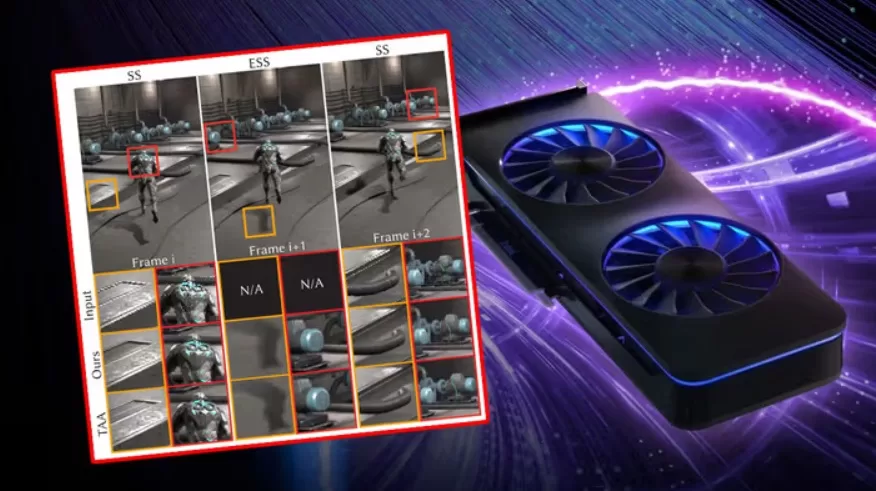
Intel is making waves in the gaming industry by introducing a new technology that could give tough competition to DLSS 3 and FSR 3. The ExtraSS technique, developed by Intel, promises to deliver higher performance and better graphics quality, offering gamers an exciting alternative.
Unlike Nvidia and AMD solutions, Intel has taken a different approach with ExtraSS. Instead of using frame interpolation, Intel has opted for extrapolation, which has significant implications for functionality. This innovative technique combines spatial super-sampling and frame extrapolation, resulting in improved gaming performance and graphics quality.
During the Siggraph Asia 2023 event, Intel showcased the ExtraSS technique, highlighting its unique use of extrapolation. While interpolation used in DLSS and FSR often comes with increased latency, extrapolation eliminates this drawback. With ExtraSS, Intel aims to utilize information from previous frames to enhance the gaming experience.
To ensure that the technique avoids artifacts and image distortions, Intel utilizes geometry buffer warping to reuse temporal and spatial information. According to Intel, ExtraSS can deliver quality comparable to TAA smoothing, even when the input resolution is as low as 540p for an image displayed in 1080p resolution. The technique, which utilizes motion vectors, has shown promising results in its current stage of development.
In fact, Intel claims that when implemented in the Unreal Engine 4, ExtraSS demonstrated better performance and image quality compared to other super-sampling methods. What’s even more interesting is that the ExtraSS technique may be hardware-independent. The solution was tested on a computer with a GeForce RTX 3090 graphics card, indicating its potential compatibility with cards from all manufacturers.
If Intel continues to make progress with ExtraSS, it could provide an exciting alternative to DLSS and FSR, especially for FSR 3, which currently performs worse than DLSS. With ExtraSS working on graphics cards from all manufacturers, gamers will have more options to choose from.
Intel’s ExtraSS technique is a significant development in the gaming industry. By focusing on extrapolation instead of interpolation, Intel aims to deliver higher performance and improved graphics quality. As the technology continues to evolve, it will be interesting to see how ExtraSS competes with DLSS and FSR, offering gamers a new and exciting alternative.








